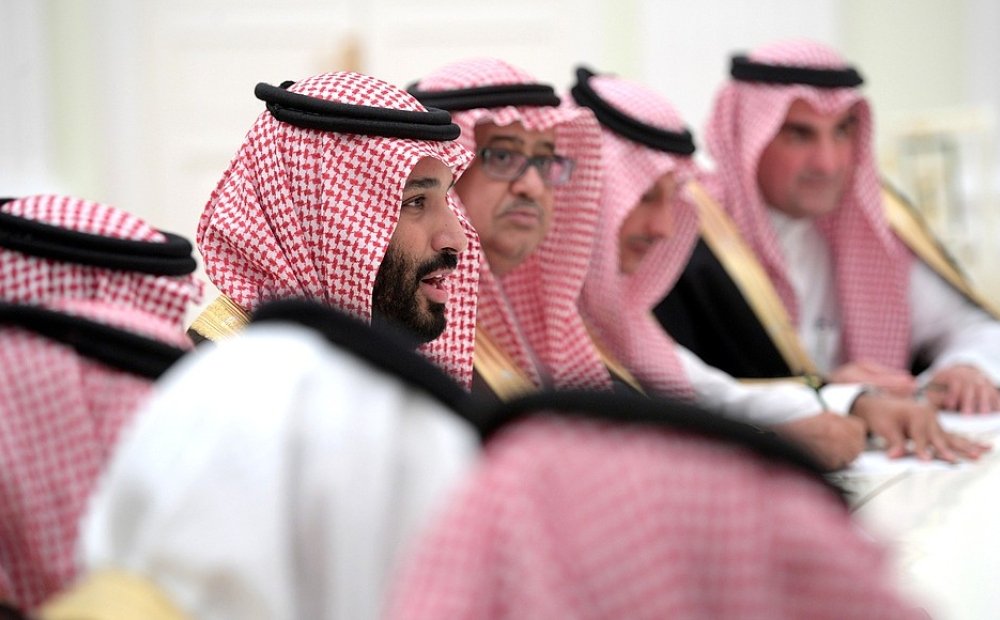Saudi Arabia’s Game of Thrones

Under the authority of his father King Salman, the young prince who would be King, Muhammed bin Salman, moved in head spinning fashion to eliminate his rivals and consolidate power. Both at home and abroad, especially in Yemen; against Qatar and Iran, and now in Lebanon, MBS is pursuing risk-ready policies unprecedented in the country’s history.
In this conversation, three veteran observers of Saudi Arabia discuss internal politics, foreign policy, and Saudi Arabia’s relationship with the United States in what is becoming one of the region’s most striking and intriguing stories.
Key Quotes
David Ottaway:
“I guess I would start by saying that this is an extraordinary happening in the history of Saudi Arabia and above all, in the history of the al-Saud ruling family. We’ve never seen anything like this. It really breaks the code of conduct of how the family has been doing business…”
“Well what strikes me about Muhammad bin Salman is he resembles President Trump. He wants to show that he’s a strong person, a strong leader. He’s headstrong, he’s impulsive. They’re both trying to use the might of their country to assert their role in the world.”
"I don’t know whether one person, one Saudi prince that’s 32 years old, can carry off what he’s trying to do, this tremendous transformation, if he makes enemies out of all of the other branches of the Saud family that he’s now shoved aside or put in jail or frozen their bank accounts or you name it.”
“Saad Hariri lived, and was haunted by, the fear of assassination and the Saudis may well have played upon that fear to convince him to step down.”
Jamal Khashoggi
“I think the headline should be, ‘one-man rule of the absolute monarchy.’ One-man rule is always bad and we the Arabs have had bad experience with one-man rule.”
“Here in America you have restrictions, you have constraint that you can keep Trump from his impulsive decisions but we in Saudi Arabia, we cannot. God forbid if his Highness decided to send troops tomorrow to Lebanon. He doesn’t have to check with anybody in Saudi Arabia before he does such a decision and I can make a list of decisions he has made in the last couple of years which we are still paying for it, with the war in Yemen which we support as people of Saudi Arabia because we were worried of the Iranian expansionism, but at the same time we cannot have a say on how the war is going.”
“He [Muhammad bin Salman] is the sole owner of the Saudi future. If he can succeed in driving his economic reform, I think he can go on ruling Saudi Arabia for a decade or two. Nobody would care about human rights abuse, but he has to win economically.”
Ambassador Gerald Feierstein
“For the first time you have all of the instruments of Saudi defense and security in the hands of one individual.”
“Riyadh has now brought the administration into the middle of three foreign policy problems that put us in an extremely uncomfortable situation: Yemen, Qatar, and now Lebanon. All three, in one way or another, complicate the administration’s approach to defeating ISIL and Al Qaeda, and containing Iran.”
“The Iranians who put out a very brave front on in response to the Saad Hariri resignation, in fact as best we can tell, are alarmed about it because they do believe that it increases instability in Lebanon and also raises the potential of another conflict between Israel and Hezbollah you know, a repeat of 2006.”
Speakers

Former Washington Post Middle East Correspondent
Introduction

Moderator

Hosted By

Middle East Program
The Wilson Center’s Middle East Program serves as a crucial resource for the policymaking community and beyond, providing analyses and research that helps inform US foreign policymaking, stimulates public debate, and expands knowledge about issues in the wider Middle East and North Africa (MENA) region. Read more
